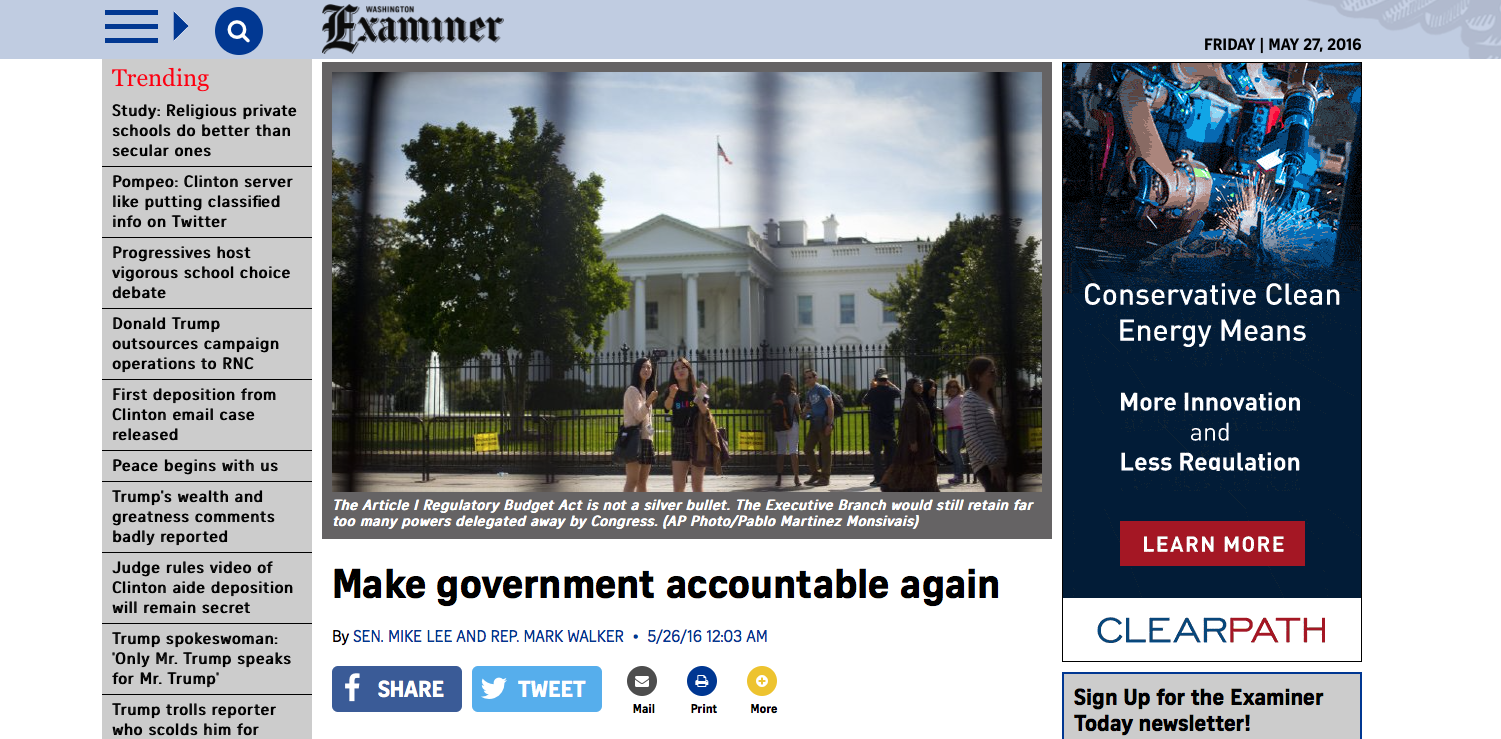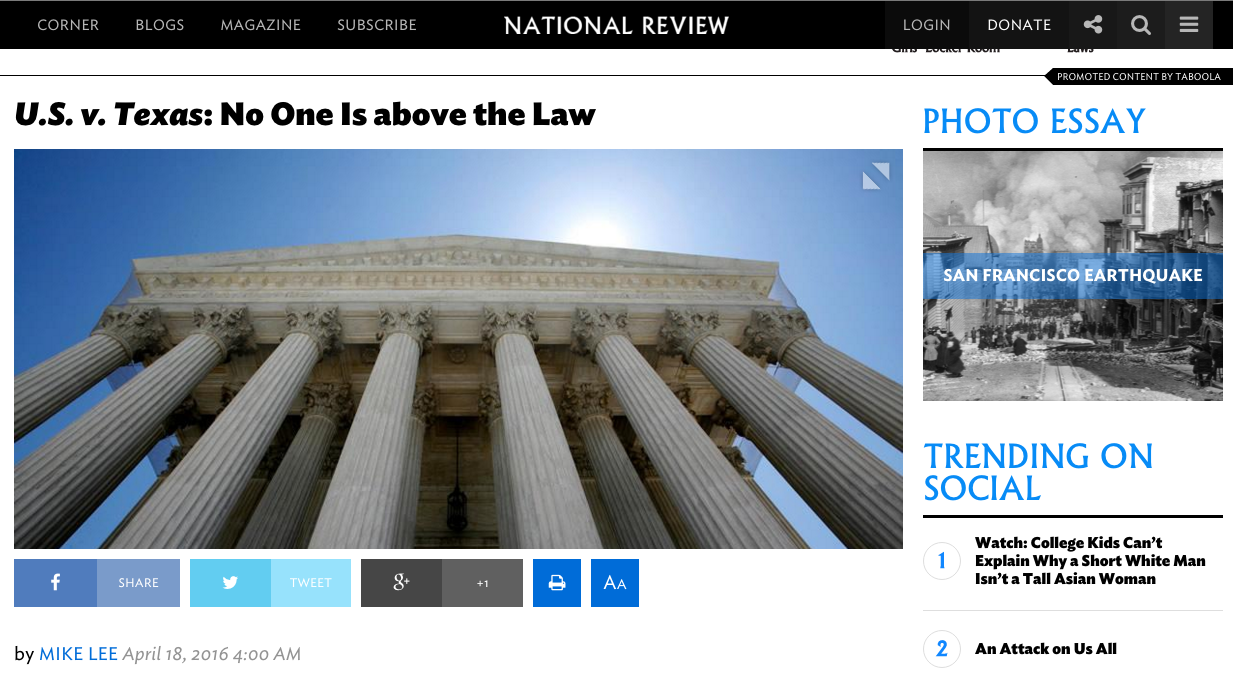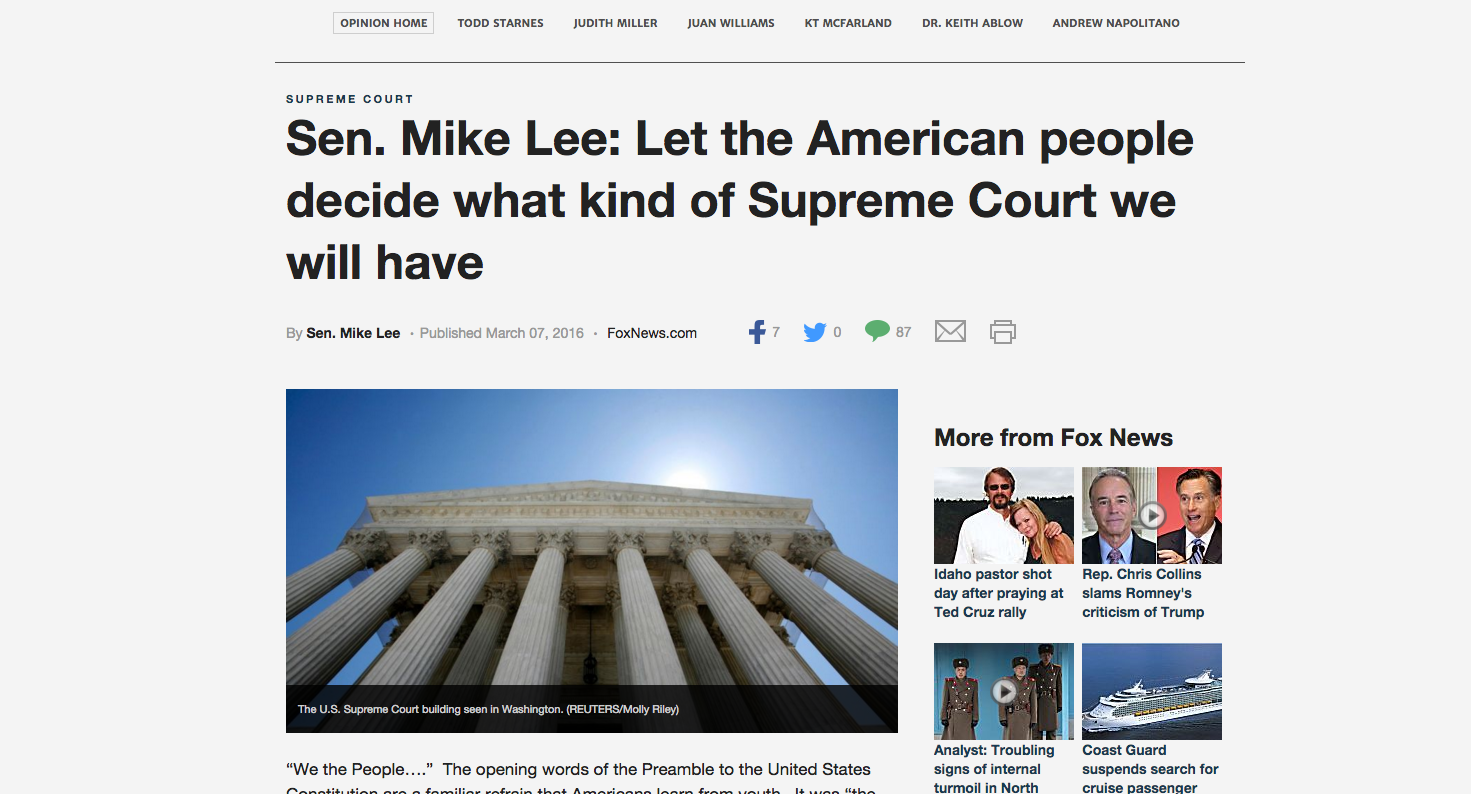The battle to ‘keep’ the American Republic
Sep 16, 2016

Perhaps the most famous words spoken on the day we commemorate this week — September 17, 1787 — were those of Benjamin Franklin. After the Constitution had been signed and the convention adjourned, Franklin was asked by a group of curious Philadelphians gathered outside Independence Hall what type of government the delegates had created. “A republic,” he replied, “if you can keep it.”
Mike Lee: Make Utah even greater
Sep 8, 2016

Utahns have a lot to be proud of. We’re one of the happiest and healthiest states in the nation. We have one of the lowest poverty levels and the lowest level of income inequality of any state. Our economy ranked second in the nation for job growth last year, and CNBC named Utah the top state for doing business this year.
Despite all that we have accomplished, we cannot rest on our laurels. Not only are neighboring states looking to emulate our success, but unaddressed policy challenges are creating opportunities we should capitalize on.
Keep Calm and Carry On Trading
Jul 7, 2016

It was Brexit, the free and fair democratic vote by the British people to take back some control over their lives and laws from unelected bureaucrats in Brussels, the headquarters of the European Union’s administrative machinery. That critics would equate such a vote to the beginning of World War II says more about their skewed priorities than it does about the merits of the British people’s decision.
Make Government Accountable Again
May 27, 2016

In a little over eight months, a new president will take the helm of a federal bureaucracy that inflicts almost $2 trillion in costs on the American economy annually. And under current law, the American people have little opportunity to limit how the next president will use this bureaucrac
Making Welfare Work Again
May 26, 2016
The key to understanding America’s social-welfare system today — and why it needs to be reformed — is not its bloated annual budget but its tendency to undermine the two most dependable routes out of poverty: work and marriage.
We Don’t Need a National Zoning Board
May 16, 2016
The Obama economy has been tough on America’s working families. Just last week Pew Research Center reported that in the last 15 years “the middle class lost ground in nearly nine-in-ten U.S. metropolitan areas.” One cause of this 15-year squeeze of hardworking Americans? Rising housing prices.
Let's close the email privacy loophole now
May 10, 2016

This week the House of Representatives took an historic step for Americans’ privacy rights. By an overwhelming vote of 419-0, it passed bipartisan legislation to protect Americans’ email and other information in the cloud from warrantless searches. Now that the House has passed the Email Privacy Act to finally update our laws for the digital age and without a single opposing vote, the Senate should do the same.
Obama’s Violating the Constitution by Not Submitting Climate Treaty to Senate
Apr 22, 2016
"If Congress fails to specifically prohibit taxpayer money from being spent implementing the Paris Climate Agreement, then they will be complicit in President Obama’s subversion of the Constitution."
Obama broke the law with DAPA. Will the Supreme Court stop him?
Apr 18, 2016

One of the most fundamental challenges facing the United States today is the deep and growing distrust between the American people and their political system in Washington, D.C. And the inconvenient truth — rarely acknowledged by Washington elites — is that the American people’s distrust of their public institutions is totally justified.
Sen. Mike Lee: Let the American people decide what kind of Supreme Court we will have
Mar 7, 2016

“We the People….” The opening words of the Preamble to the United States Constitution are a familiar refrain that Americans learn from youth. It was “the People” who established the United States Senate in Article I, Section 1, of that document, and it is for them that my colleagues and I now serve.
That same charter established “one supreme Court,” consisting of judges appointed “by and with the Advice and Consent of the Senate.” As law professor John McGinnis stated in “The Heritage Guide to the Constitution,” this provision gives the Senate “complete and final discretion in whether to accept or approve a nomination.” And as legal scholar Adam White has demonstrated, in a 2005 article carefully analyzing the Appointments Clause, that the Senate retains complete discretion with respect to whether it should even consider – much less accept or reject – presidential nominees.